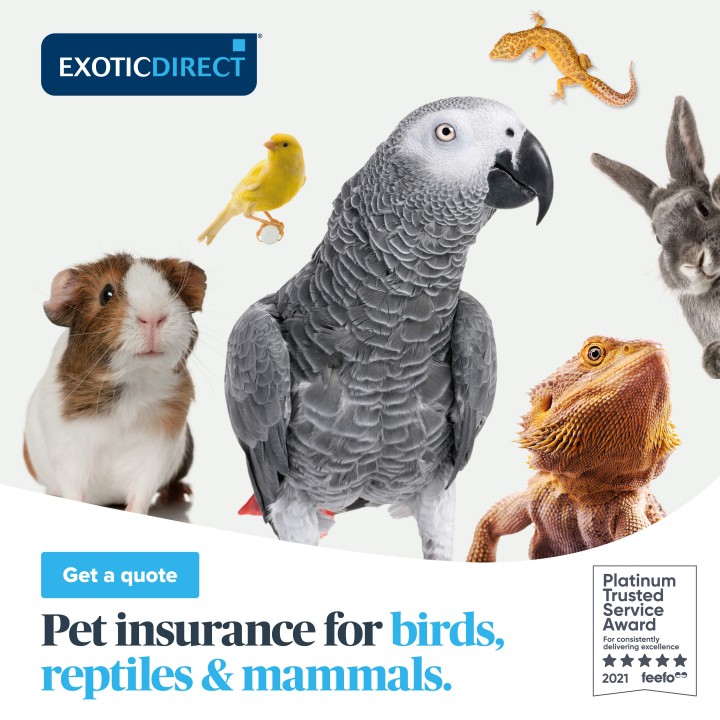Taking your baby parrot home
Your new baby will naturally be a little unsettled on moving to a new home, although it’s surprising how adaptable baby parrots can be!
Ideally, the cage should be in a quiet room separate from the main living room, and a simple T-stand kept in the living room as this is good for training and interacting with the baby.
On arrival, it’s best to place the baby in his cage with the perch at the same level as four feed-bowls.
There should be fresh water in one bowl, dry seeds and nuts in another, pellets in the third bowl, and fresh fruit and vegetables in the fourth.
Half a corn-on-the-cob, a whole apple and carrot and a slice of wholemeal or seeded bread are good for welcoming the baby and encouraging him to start eating. The parents would regurgitate food for their offspring for up to a year, so warm hand-feed can be offered on a spoon too.
Babies may be noisy in their new home, calling loudly trying to locate parents, siblings… or me! Take care not to respond by talking back loudly, or by encouraging loud squawks through taking baby out of the cage when he shouts. Rather, talk in a quiet and soothing voice, and take him out of the cage only when he is quiet.
Some babies will ‘beg-cry’ and flick their wings, which is natural behaviour designed to solicit feeding from the parents. This is when warm baby-food should be offered, on a tea-spoon.
When you do take the baby out of the cage, ensure you do this by encouraging him to ‘step-up’ onto your hand, rather than by leaving the cage-door open for him to come out by himself.
By keeping up with the ‘step-up’ and ‘step-down’ training, and only allowing baby on the hand - never the arm or shoulder - you will ensure ease of training for the future.
Babies will fly fast, and may crash into windows and ornaments, so remove any breakables and close curtains until they have grown up enough to land safely on your hand or the T-stand.
Encouraging flight between you and the T-stand is healthy exercise, and repeatedly placing the baby on the stand soon makes this his ‘safe place’.
‘Potty-training’ can be successful by praising him when he passes a motion while on the stand.
If you want to ‘harness-train’ your baby, this should be done quietly and gently when he is still young, placing it across him if he’s happy, and then doing it up when he is accepting of it. A few minutes every day will accustom him to it, but never leave it on for long as it will irritate him.
Never clip his wings. More birds are lost with clipped wings than when fully-flighted, as the owner thinks they can't fly – until one day they do! Also, clipped birds become anxious and irritated by the rough edges of the cut feathers, and may pluck themselves because of this.
Train your baby to accept a light nail-filing, and this will make it more comfortable for you!
A minimum weekly - or maximum daily - spray with a plant-mister will keep his plumage clean and healthy, and some birds like going in the shower too; perches with suckers that stick onto tiles are available to help him relax and enjoy it. Always tepid water please, with nothing (shampoo, soap) added.
Enjoy your baby, and never hesitate to ask me for help - I’m always happy to receive a call from a new parent!
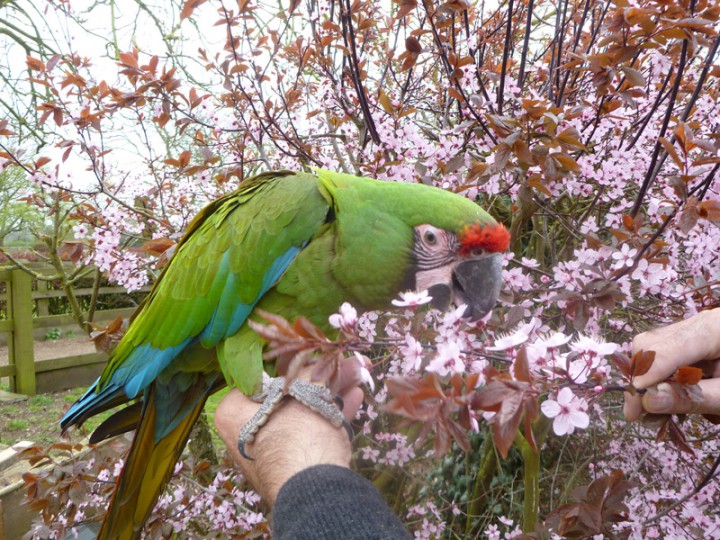
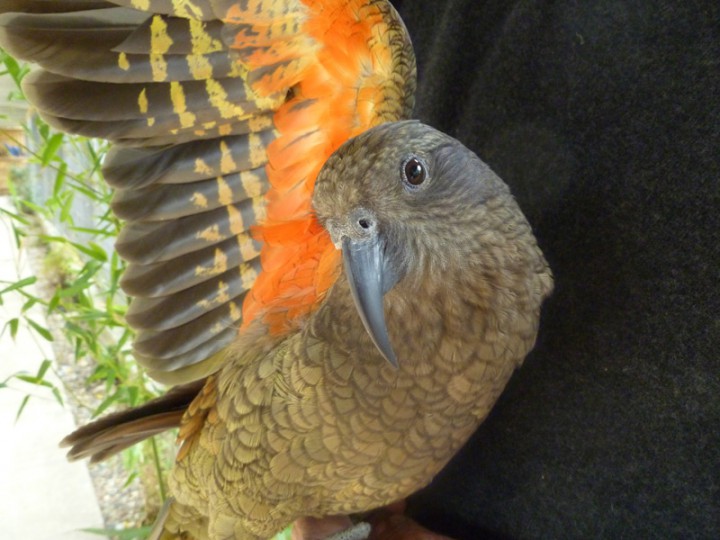
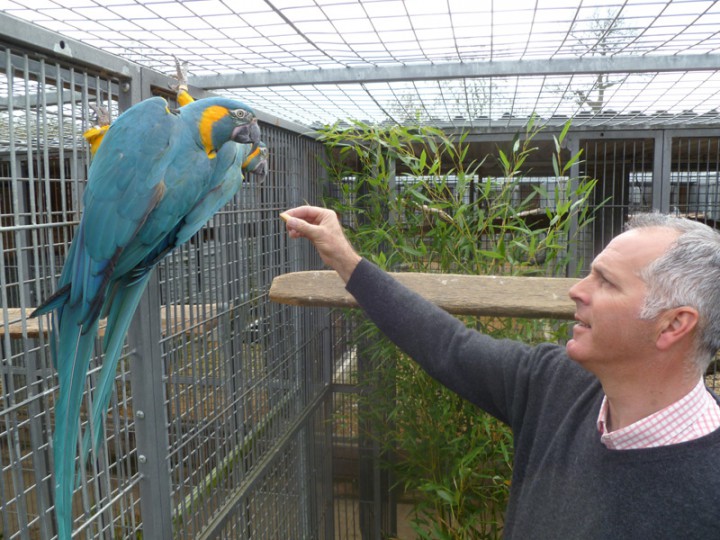
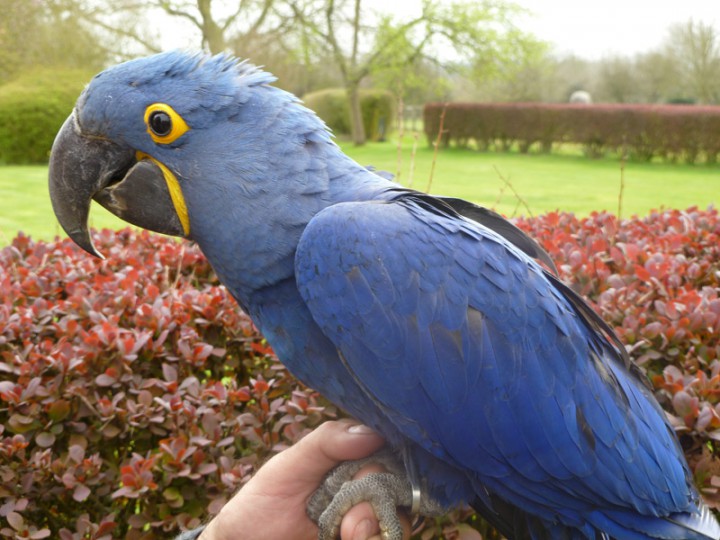
Feeding
Parrots, like humans, are omnivorous, and enjoy different tastes and textures. Individual preferences may vary, so experiment and find your parrot's favourites, perhaps keeping one of these as a training treat. Variety is the spice of their lives.
(Remember though - they are messy and wasteful feeders, so be prepared to clean up!)
Parrot pellets, such as ‘Kaytee’, can be added as an addition to the diet, but never as a complete diet (as is the trend with vets, and Americans…)
Human-quality seeds such as sunflower, safflower, pumpkin and melon can be offered, with the sunflower invariably the favourite. Some parrots will eat millet and canary seed - or just enjoy ripping up a millet spray!
Peanuts - again of human-quality - are a favourite nut, and will be eagerly consumed daily, as will pinenuts, walnuts, almonds, hazelnuts, macadamias - in fact, the list is as long as availability.
Any fruit can be offered, with the exception of avocado which is apparently poisonous to parrots. Favourites tend to be apple, banana, oranges, grapes and cherries - but try everything, including peppers and chilli!
Any vegetable can be offered raw or cooked (there are more vitamins in raw); I find favourites to be corn-on-the-cob, peas-in-the-pod, carrots, celery, broccoli etc.
Dried pulses such as peas, chickpeas, mung beans and black-eyed beans can be soaked for 24 hours then rinsed thoroughly and offered.
Wholemeal and seeded bread, cooked pasta and rice are eagerly accepted by most parrots.
Cooked chicken and chicken bones are a treat for some, and cubes of cheddar cheese are a calcium-rich addition to the diet.
No salty, sugary or chocolate foods should ever be given, but otherwise try offering whatever you’re eating yourself (small quantities please!)
Exotic Direct can insure your bird up to a value of £2,500
online; you will receive a discount of 20% if you do so within 14 days of purchase.
Click on the image, then the 'Add a voucher' option, and enter 'Barrett Watson Parrots'.
Higher insurance values - again, discounted - can be discussed by telephoning Exotic Direct on 0345 982 5505.
